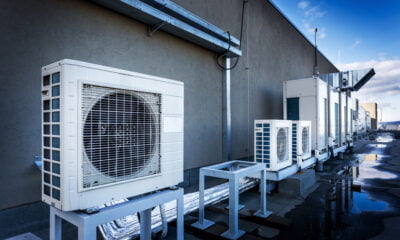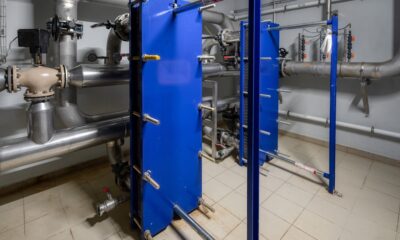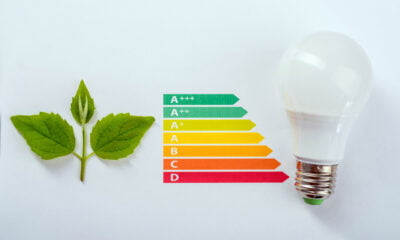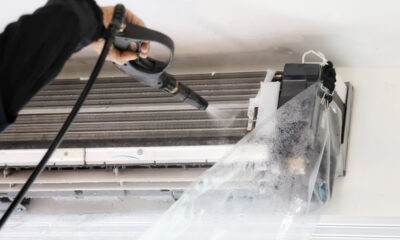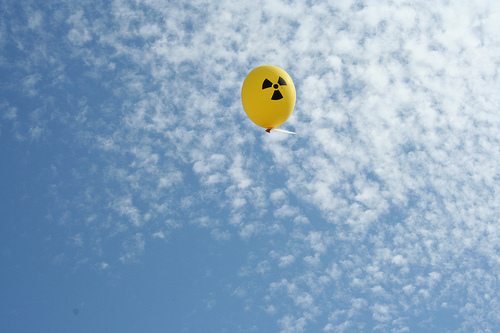

Energy
New Hinkley nuclear plant should have fewer wrinkles than its predecessors
The government announced on Monday that it had reached agreement with energy firm EDF over the construction of a nuclear power plant at Hinkley Point in Somerset.
The facility should be operational from 2023 and according to the government, will create jobs, increase energy security and provide clean electricity for the masses.
Ilaria Bertini caught up with Francis Livens, professor of radiochemistry and research director at the Dalton Nuclear Institute at the University of Manchester
Some opponents say that relying on nuclear energy will raise bills, while the government claims the opposite. What will be the effects of Hinkley Point C on consumers and what can be done to avoid high energy bills?
I suspect energy bills will rise over the next decades with or without Hinkley C. Energy demand has historically risen pretty steadily over recent decades, and price follows demand closely. From a UK perspective, there are many uncertainties over energy supplies and their costs on a timescale of 40 or 50 years.
It will be a long time before we know if Hinkley C is a good investment or not, but what the strike price reflects is a judgment on the state of the energy market from about 2020 to beyond 2050. EDF and the government have made one judgment; other people may make different ones.
Aside from the purely financial argument, new nuclear reactors are a relatively secure source of energy compared with, say, imported gas. So the question is not just financial; it is about energy security, too, and diversity of supply is probably a good thing there.
How to avoid higher energy bills? There’s probably no easy answer. Use less, which takes you to energy efficiency measures.
What are the strengths and weaknesses of the Hinkley Point C plan?
Well, it is different from the UK’s previous approach, in that the reactor isn’t being built by a UK nationalised industry. Allowing a company to do the job means that the risks are shared and may insulate the project from politically driven changes. So that is probably a good thing.
As with all the potential new build reactors, we aren’t designing this from scratch. It is based very much on an existing design and you’d expect construction to get more efficient and cheaper as more and more are built. In the specific case of Hinkley, this design is already being built in Finland and France, and there are certainly problems with those but, by being third in line, you’d hope there would be fewer wrinkles in the Hinkley programme.
I guess there is also a risk, with some of these projects, that an overseas supplier won’t be familiar with the British regulatory system, which is very demanding, but EDF have run reactors in the UK for many years, so they understand it very well.
What could be the successful future UK’s energy mix?
If I knew this, I would have retired to a private island somewhere warm many years ago! It is very difficult to know, especially over the 50-year plus timescale of a new nuclear plant. There are technologies out there which could completely change the game, or may just never fulfill their promise and turn out to be insignificant.
I suppose what’s becoming clear is that current fossil fuel technologies are too expensive and too polluting so there is a move away from those. It’s also pretty unlikely that demand will fall substantially. So conservation and energy efficiency have to be part of the story, and until it becomes a bit clearer which technologies will and will not deliver the goods, it is prudent to keep options open, and that means a balanced energy mix, which is what the government’s pursuing.
Two of the most common objections to nuclear plants are the construction costs and waste disposal issues. The first issue has been partly addressed with the involvement of EDF, but what are the plans over waste disposal?
The government has indeed been very clear about the importance of waste disposal. One attraction of the reactor type EDF are proposing is that it is an evolution of a long-established design, which has been used worldwide for many decades.
Several hundred have been operated worldwide since the 1950s. That means that the waste produced is well understood, and there is enormous experience in managing it.
Hinkley C waste will be no different from Sizewell B waste, which we have already been looking after for almost 20 years, or from the wastes produced by overseas Pressurised Water Reactors. While the UK has been slow to develop a geological disposal facility, the government has done a lot of work and it does have a clear pathway towards disposal and, if we look overseas, we can see the Swedes, Swiss, and French making good progress towards disposing of the same types of waste that Hinkley C will produce.
There has been a lot of talk recently about fossil fuels divestment, given that their uncertain future and volatility could be a major threat to investors and the climate. Would you say that it’s safe and sustainable to invest in nuclear?
I think what’s become clear is that producing energy on a large-scale from whatever source brings a price. That price will be a mix of financial, social, political and environmental costs – just look at the financial costs of mitigating climate change, protests over fracking, or objections to wind turbines.
In that sense, nuclear is no different: it brings costs – the large up front finances, public concern – and benefits – low-carbon energy, security of supply.


 Environment12 months ago
Environment12 months agoAre Polymer Banknotes: an Eco-Friendly Trend or a Groundswell?

 Features11 months ago
Features11 months agoEco-Friendly Cryptocurrencies: Sustainable Investment Choices

 Features12 months ago
Features12 months agoEco-Friendly Crypto Traders Must Find the Right Exchange

 Energy11 months ago
Energy11 months agoThe Growing Role of Solar Panels in Ireland’s Energy Future


